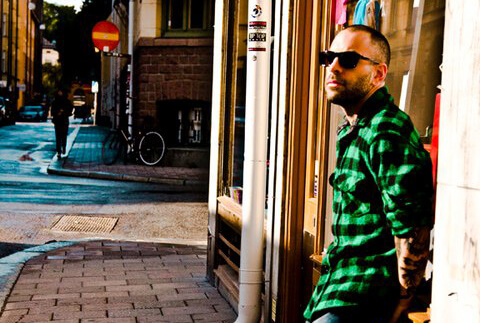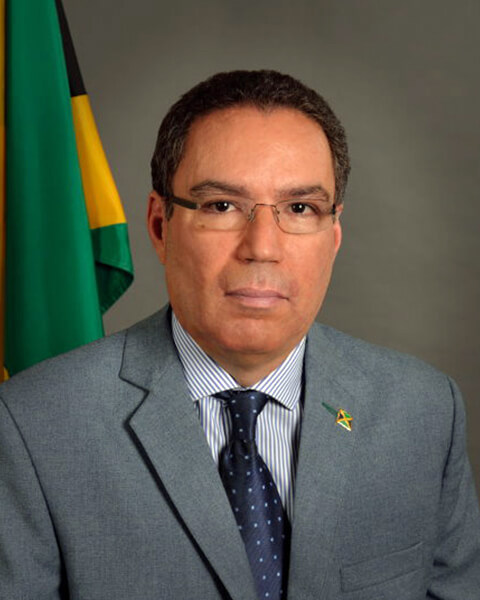Noah Michelson is continually surprised by the voices his vertical pulls onto the Huffington Post.
Gay Voices, the LGBT “vertical” at Huffington Post, hit the ground running when it launched last October. According to its editor, Noah Michelson, within a month it had become the number one queer-focused site on the web. It averages, he said, roughly three million unique visitors each month, though traffic can vary widely from day to day based on the vagaries of what’s hot in the world of news and online chatter.
Michelson shared a host of statistics demonstrating not only the reach but also the growth of the page. Average daily visits grew about 80 percent from October 2011 to this June; comments rose about 50 percent and social interactions based on Gay Voices content increased more than 100 percent. The vertical’s Twitter feed, which has more than 30,000 followers, increased by about 8,000 in the two weeks prior to Michelson sitting down with Gay City News on August 7.
The surge in Twitter followers can likely be explained by extraordinary attention to the controversy surrounding inflammatory anti-gay comments made by Chick-fil-A president Dan Cathy, the response of the LGBT community and its allies, and the right-wing backlash against that response. An August 1 story in which the restaurant chain’s gay employees spoke out, written by Gay Voices reporter Lila Shapiro, received about 30,000 comments in just the first six days — the tally as of August 28 stands at nearly 38,000.
“I’ve never seen anything like the Chick-fil-A story,” said Michelson — who oversaw web content for Out magazine prior to moving over to the Huffington Post — of the fire the controversy ignited on the web.
Gay Voices brought considerable corporate strengths to its foray into the LGBT online world. Housed in the tech-world-chic offices of AOL-Huffington Post near Cooper Square — where the opportunities for employee R&R, not to mention caffeine and munchies, provide the perfect incentives for long hours — Gay Voices is the only LGBT-specific site in the mega-blog world in which HuffPo plays. The overall site, with more than two million Twitter followers, provides a ready-made audience for Voices verticals that also target blacks, Latinos, women, teens, college students, and people of faith.
“We’re able to take stories that would not get wide attention and then blow them up into so much more,” Michelson said.
Though Shapiro is currently his only dedicated reporter, journalists who report on other parts of the website contribute content relevant to Gay Voices. Michelson estimated that 20 percent of the vertical’s content is original Huffington Post reporting, with another 50 percent aggregated from other sources. The remainder comes from blog posts by a universe of contributors who Michelson said “constantly surprise” him in their diversity.
In several interviews, he has pointed to a post from Le Tigre bandmember J.D. Samson, who wrote with what Michelson termed “brutal honesty” about the trouble she has paying her rent despite her fame in the music industry. He also spoke with particular pride about an anonymous blogger named Amelia, who writes about her seven-year-old son who already identifies as gay.
The opportunity for verticals like Gay Voices to draw readers from across the Huffington Post platform has led Michelson to a surprising conclusion about its visitors. There is no way to measure the sexual orientation or gender identity of Gay Voices readers, but he suspects the majority are straight.
“Our issues are becoming more mainstream,” he said, explaining that his conclusion about his readership is “based on the integration of all our verticals. There are click-throughs to Gay Voices that lure people, and once they get there they stick around.”
Not all of those who stick around are well intentioned, Michelson said. Stories on transgender issues, in particular, he said, have generated “some terrible comments.”
For most readers, however, the site’s queer stories, he said, often point up either “despicable behavior” on the part of anti-gay forces or “inspiring” messages about LGBT empowerment. Both sorts of posts, he said, have a big potential “to go viral.”
Overseeing an LGBT web resource — the majority of whose readers are likely straight — on a huge mainstream site represents a profound leap for the 34-year-old Michelson from his days as a student at Macalester College in St. Paul, Minnesota.
“I fancied myself a radical,” he recalled about his time in the Twin Cities, where he stayed for a while after graduating. Minneapolis, he said, is one of America’s queerest cities, and there, harking back to pioneering activists a generation and more older than himself, he came to see “sexual liberation as the cornerstone of gay liberation.”
Nine years ago, Michelson moved to New York, settling in Chinatown, which nobody has ever described as an up and coming gay neighborhood — though he’s not really that far from the booming Lower East Side scene. He came to the city to earn an MFA in poetry at NYU, with the hope of teaching afterward as he pursued his art. Though he has enjoyed success as a published poet — in venues from literary magazines to the New Republic — poetry teaching posts are few and far between.
At 29, Michelson embarked on what he termed a “humbling experience” — working as an unpaid intern at Out magazine. The most important things he learn at the outset were that he was “hungry” and that he had a good nose for the topics that drove the cultural moment. Soon going on paid staff, he rose in the ranks at Out, with the aid of “a boss who let me write what I wanted.” When recruited by the Huffington Post late last summer, he was a senior editor at Out.
As he sat discussing Gay Voices in the HuffPo offices, Michelson’s T-shirt showed off his heavily tattooed arms, and his eager enthusiasm for explaining his mission could lead one to mistake him for a man even younger than 34. At the same time he embarked on his new project with the Huffington Post, he began seeing his first boyfriend in a decade; the two have now been dating for a year.
Asked how important the marriage equality issue is for him, Michelson was momentarily caught off guard, betraying the ambivalence, even embarrassment some sexual liberationists feel about the community’s embrace of society’s most traditional institution.
“I think everyone should have the right to marry,” he responded dutifully, before adding, “But I don’t know if I will ever get married.”
Stories about the numerous marriage battlefronts are, of course, important to any LGBT website, but Michelson acknowledged the issue “can be a distraction” from other community concerns.
He said he works hard to keep the site as “sex-positive” as possible, noting that porn stars and promoters have been among those posting, creating content that is likely more difficult to find a home for in glossy print publications.
The diversity Michelson works to create on Gay Voices points up a tension in the LGBT community between the “messaging” that established leadership tries to maintain in the media and the messy coloring outside the lines that inevitably results from the democratization in the online world. He noted that “there is a strong ‘don’t rock the boat’ attitude” on the part of leading advocacy groups, shared by many in the community, pointing out that when the Chick-fil-A controversy led to calls for kiss-ins at franchises around the country, Gay Voices received a lot of comments to the effect of “don’t put it in their faces.”
“As we get more rights, I think people get more squeamish,” Michelson said. “I think people also forget what things used to be like.”
He acknowledged that he and editor-at-large Michelangelo Signorile, a longtime journalist and activist who has a daily program on SiriusXM radio, do not oversee a site based on total anarchy. On any given day, the two work “to steer the conversation,” to act, in a sense, as curators. Still, “no directives are handed down from on high” at HuffPo, Michelson said.
“We’re doing our job if the page, or the vertical as well call it, is a snapshot of the LGBT community at any given time,” he said.




































